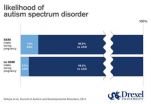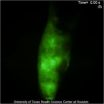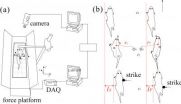(Press-News.org) PHILADELPHIA (June 2, 2014) – A new study from researchers at Drexel University adds evidence that using common antidepressant medications during pregnancy may contribute to a higher risk of autism spectrum disorders (ASD) in children, although this risk is still very small.
Results from past studies of prenatal use of selective serotonin reuptake inhibitors (SSRIs) and ASD risk have not been consistent. An ongoing challenge in this line of research is trying to tease apart potential effects of the medication on risk from the effects associated with the condition for which the medication was prescribed (most commonly depression). Based on past studies, both SSRIs and genetic factors associated with depression are likely associated with greater risk of ASD.
This new study, published online ahead of print last month in the Journal of Autism and Developmental Disorders, suggests that under-reporting of maternal depression, if not properly considered in analyses, may influence results of studies trying to address this question.
In the study, the Drexel team analyzed large population based registers of nearly 750,000 births in Denmark from 1997 through 2006. They found that about 1.5 percent of children born to women who had taken an SSRI during pregnancy were diagnosed with ASD, compared to about 0.7 percent of children born to an otherwise similar group of women not taking the medication.
"We found a two-fold increased risk for ASD associated with in utero exposure to SSRIs compared to the unexposed reference group" said lead author Nicole Gidaya, PhD. "More importantly, in our analysis we accounted for under-reporting of maternal depression in the register. This suggests that under-reporting of the confounder, maternal depression, may be a limitation in approaches previously used in the other studies."
Gidaya, who performed this study while a doctoral student in the Drexel University School of Public Health, noted that "if the increased ASD risk we saw here is real, it is important to realize that the number of ASD cases that could be prevented by reducing SSRI exposure in pregnancy still represents only a small fraction of overall cases of ASD."
The researchers further advised caution in interpreting the results in practice. Because of the challenges of distinguishing effects of medications from those of the condition indicating their use, more research in larger study populations will be needed to confirm the findings. In addition, the decision whether or not to use an SSRI in pregnancy is a complex one; pregnant women and their doctors need to consider women's physical and mental health needs as well as other pregnancy-associated risks, including risks associated with untreated depression both during and after pregnancy.
However, the research team believes that the greater value of this finding is to direct further attention on understanding the mechanisms by which in utero SSRI exposure might influence the developing brain. Serotonin is a neurotransmitter whose use by the brain is altered during depression and modified by SSRI use, and has been shown to play an important role in brain development.
The authors of the current study point out that there is still a need for more population studies of possible associations between maternal SSRI use and autism, in light of the limitations of the present study and the conflicting results within the field's previous studies of the question. They say future studies should use a large population sample where there is good quality data about exposure to medication, mental health diagnoses as well as ASD diagnoses.
"As we complete research in our attempts to understand autism's causes we continue to realize that there are likely many genetic and non-genetic contributors," said Craig Newschaffer, PhD, director of the A.J. Drexel Autism Institute and professor in Drexel's School of Public Health, and the study's senior author. "We must begin trying to map these multiple risk factors on to common pathways, so that these pathways can be a focus in our effort to prevent the impairment associated with ASD. Pathways involving the brain's serotonin system are still one viable candidate."
INFORMATION:
Link to paper: http://dx.doi.org/10.1007/s10803-014-2128-4
In utero exposure to antidepressants may influence autism risk
2014-06-03
ELSE PRESS RELEASES FROM THIS DATE:
Breaking down barriers
2014-06-03
The Gobi-Steppe Ecosystem is world renowned for its populations of migratory ungulates, which cover great distances in search of forage. Researchers at the Research Institute of Wildlife Ecology at Vetmeduni Vienna have documented, that in just one year an individual wild ass can range over an area of 70,000 km2. "Wild asses and gazelles have to be permanently on the move and travel very long distances to find enough food. Rainfall is highly variable in this region. As a consequence pastures are patchy and unpredictable in space and time," explains Petra Kaczensky, one ...
Lasers and night-vision technology help improve imaging of hidden lymphatic system
2014-06-03
VIDEO:
This is a movie illustrating the lack of lymphatic flow in the lower leg of a subject with lymphedema.
Click here for more information.
WASHINGTON, June 3, 2014—The human lymphatic system is an important but poorly understood circulatory system consisting of tiny vessels spread throughout the body. This "drainage" network helps guard against infections and prevents swelling, which occasionally happens when disease or trauma interrupts normal lymphatic function. Chronic ...
Security guard industry lacks standards, training
2014-06-03
EAST LANSING, Mich. --- Despite playing a more important role in the wake of 9/11, the security guard industry remains plagued by inadequate training and standards in many states, indicates new research by Michigan State University criminologists.
Formal training of the nation's 1 million-plus private security officers is widely neglected, a surprising finding when contrasted with other private occupations such as paramedics, childcare workers and even cosmetologists, said Mahesh Nalla, lead investigator and MSU professor of criminal justice.
By and large, security ...
Balancing strategy to lateral impact in a rat Rattus norregicus
2014-06-03
The balancing strategy to lateral impact in a rat is closely related to the striked position of the body. The research result can be inspired to improve the robustness of bionic robot. This was found by Dr. JI Aihong and his group from Institute of Bio-inspired Structure and Surface Engineering, Nanjing University of Aeronautics and Astronautics. This work, entitled "Balancing strategy to lateral impact in a rat Rattus norregicus", was published in Chinese Science Bulletin (In Chinese),2014, Vol 59(13) issue.
The center of mass(COM) of animal's body always falls ...
Modeling and simulation in the big data era
2014-06-03
The big data era bring the confusions, challenges and opportunities to the modeling and simulation field tightly associated with big data. The Chinese Association for System Simulation undertook the 81st new ideas and new theories academic salon of China Association for Science and Technology. This salon, directed by Li Bohu (academician of Chinese Academy of Science) and Hu Xiaofeng (professor of National Defense University, PLA) as the leading scientists, called about 20 specialists and scholars from all the country together. They deeply investigated big data from different ...
Scientists uncover features of antibody-producing cells in people infected with HIV
2014-06-03
WHAT:
By analyzing the blood of almost 100 treated and untreated HIV-infected volunteers, a team of scientists has identified previously unknown characteristics of B cells in the context of HIV infection. B cells are the immune system cells that make antibodies to HIV and other pathogens. The findings augment the current understanding of how HIV disease develops and have implications for the timing of treatment. Researchers at the National Institute of Allergy and Infectious Diseases, part of the National Institutes of Health, led the study.
Using advanced tools to probe ...
The quest for the bionic arm
2014-06-03
ROSEMONT, Ill.—In the past 13 years, nearly 2,000 veterans returned from Iraq and Afghanistan with injuries requiring amputations; 14 percent of those injured veterans required upper extremity amputations. To treat veterans with upper extremity amputations, scientists continue to pursue research and development of bionic arms and hands with full motor and sensory function. An article appearing in the June issue of the Journal of the American Academy of Orthopaedic Surgeons (JAAOS) reviews the recent advancements in upper extremity bionics and the challenges that remain ...
Stopping the spread of breast cancer
2014-06-03
CHICAGO – The primary cause of death from breast cancer is the spread of tumor cells from the breast to other organs in the body. Northwestern Medicine® scientists have discovered a new pathway that can stop breast cancer cells from spreading.
Working with human breast cancer cells and mouse models of breast cancer, scientists identified a new protein that plays a key role in reprogramming cancer cells to migrate and invade other organs. When that protein is removed from cancer cells in mice, the ability of the cells to metastasize to the lung is dramatically decreased.
The ...
A new look at old forests
2014-06-03
WOODS HOLE, Mass.— As forests age, their ability to grow decreases, a new study by Marine Biological Laboratory (MBL) scientists and colleagues has determined. Since most U.S. forests are maturing from regeneration that began about 100 years ago when extensive clear-cutting occurred, the study suggests the future growth of U.S. forests will decline.
"All forests are in succession: They get old, die (due to fire, insects, hurricane, etc.), and regenerate. This paper improves on a fundamental theory in ecosystem development: How a forest evolves over time. It demonstrates ...
With developing world's policy support, global renewable energy generation capacity jumps to record
2014-06-03
The number of emerging economy nations with policies in place to support the expansion of renewable energy has surged more than six-fold in just eight years, from 15 developing countries in 2005 to 95 early this year.
Those 95 developing nations today make up the vast majority of the 144 countries with renewable energy support policies and targets in place, says REN21's Renewables 2014 Global Status Report. And the rise of developing world support contrasts with declining support and renewables policy uncertainty and even retroactive support reductions in some European ...






